Turkish Manufacturers Stop Production After Iran Cuts Gas Supplies
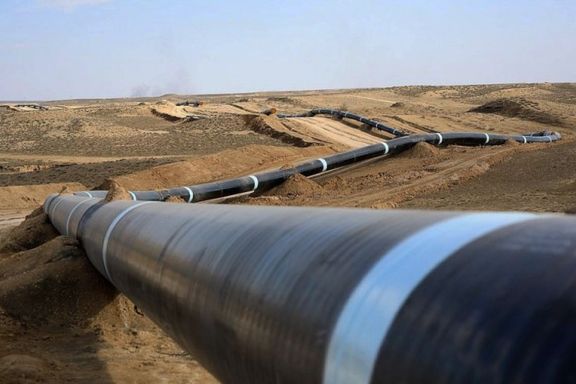
Some manufacturing companies in Turkey have halted production temporarily after Iran cut gas flows last week for up to 10 days due to a “technical problem.”

Some manufacturing companies in Turkey have halted production temporarily after Iran cut gas flows last week for up to 10 days due to a “technical problem.”
Companies affected include car parts maker Ege Endustri , cardboard manufacturer Kartonsan and defense and automotive parts maker Katmerciler.
Turkey is almost fully dependent on imported gas from Russia, Azerbaijan and Iran, which suspended gas flows to the country last Thursday, saying there was a technical fault at a pressure-boosting station in Turkey.
However, Iranian officials have been warning consumers in recent days to conserve gas, as the country cannot pump sufficient supplies when usage is highin cold or hot weather.
Ege Endustri said on Monday it will stop output at a factory until the weekend due to power cuts, and cardboard manufacturer Kartonsan said it was stopping production until further notice due to limited gas supply.
Iran said its gas exports to Turkey had resumed on Friday but a Turkish official said those supplies were lower than the required volumes. Turkey has denied that the problem was due to a fault at a pressure station on its side.
Turkish authorities have announced planned electricity and natural gas cuts to large consumers in industrial zones and electricity-generating power plants due to limited supply from Iran.
Iran provided 16% of Turkey's natural gas needs in the first 10 months of 2021, according to the latest official data.
Reporting by Reuters

Lebanese Sunni Muslim leader Saad al-Hariri said on Monday he was stepping back from politics partly blaming Iran’s intrusive role in Lebanon.
The move turns the country's sectarian politics on its head as the country grapples with a financial crisis and may delay the upcoming parliamentary election.
Hariri, three times prime minister, also called on his party not to run any candidates in May's vote, indicating several factors were behind his decision, including Iranian influence -- a reference to the heavily armed Shi'ite group Hezbollah.
Hariri's Future Movement has long been the biggest representative of the Sunni community, controlling one of the largest blocs in parliament that also included members of other sects - seats which others can now win.
In a televised address, Hariri said he had decided to "suspend any role in power, politics and parliament", his voice breaking with emotion as he spoke in front of a portrait of his father.
"I am convinced that there is no room for any positive opportunity for Lebanon in light of Iranian influence, international disarray, national division, sectarianism, and the collapse of the state," he said.
The move injects huge uncertainty into Lebanese politics just months ahead of the election, in which Hezbollah's adversaries had hoped to overturn a majority it won with its allies in 2018. It is to be seen whether Hariri’s dramatic decision can galvanize more support against Hezbollah.
The move is bound to focus more attention on Iran’s interventions in regional countries, strongly opposed by Israel and Sunni Arab states in the region. Tehran supports the Hezbollah by providing arms and money both to expand its influence and threaten Israel. As the United States negotiates to revive the 2015 nuclear agreement with Iran and lift sanctions, countries concerned over Iran’s policies have urged a comprehensive deal to change Tehran’s conduct.
Hariri’s father, Rafik Hariri, was assassinated with a huge bomb that exploded as his motorcade drove by in 2005, killing him and many others. Suspicions strongly fell on Hezbollah and Syria for eliminating a strong political figure close to Saudi Arabia.
Some analysts have said a boycott by Lebanon's largest Sunni movement, which would leave the Sunni political scene in disarray, may lead to calls for a delay.
While Hariri has remained Lebanon's leading Sunni since inheriting his father's political mantle, his political fortunes have waned in recent years, with his position weakened by the loss of Saudi support. Future lost a third of its seats in 2018, some of them to Hezbollah-allied Sunnis.
Hariri's announcement comes as Lebanon suffers an economic meltdown which the World Bank has described as one of the sharpest ever globally. The sectarian elite has failed to take steps to address the crisis even as the bulk of the population has fallen into poverty.
Walid Jumblatt, Lebanon's leading Druze politician, told Reuters the announcement was "very sad because we are losing a major pillar of independence and of moderation". "It means a free hand for Hezbollah and the Iranians," he added.
With reporting by Reuters
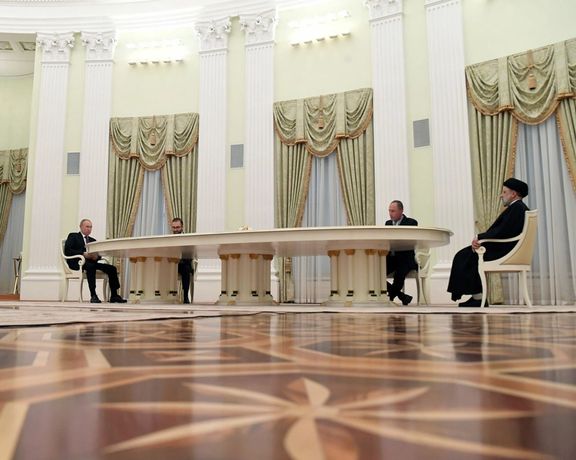
An Iranian conservative journalist has called for Iran’s Foreign Minister Hossein Amir-Abdollahian to step down over President Ebrahim Raisi’s treatment during his recent Russia visit.
Mohammad Mohajeri tweeted Monday that if he was in Amir-Abdollahian’s shoes he would resign, as the foreign minister had failed to maintain diplomatic protocols during the president’s “disgraceful trip to Russia.”
Many reformist pundits as well social media users criticized various aspects of Raisi’s trip, but such criticisms are rare from conservatives.
Mohajeri earlier slammed the president’s media team for promoting a photograph of Raisi praying in the Kremlin. Some principlists and Friday prayer leaders had eulogized an act of great significancegiven the building’s long association with atheistic Communism.
Among Twitterati taking offence, some took umbrage at Putin not welcoming Raisi at the airport, some at Putin not leaving his chair to greet the Iranian president at their meeting, some at the Russian president’s alleged impoliteness in chewing gum while Raisi spoke.
Some even interpreted the large table between the two presidents at the meeting as intentionally implying "distance," and pointed out that the two countries’ flags were nowhere to be seen. Fars news website, affiliated with the IRGC, by contrast suggested Putin was so impressed with Raisi that he became fidgety and tidied his tie to calm down.
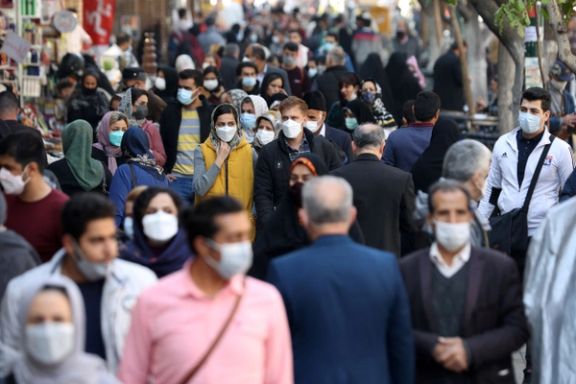
Iran intends to set the minimum monthly salary for the next Iranian year (starting March 21) at 56 million rials, which is about $200 at today’s exchange rate.
Mohammad-Reza Mirtajodini, a member of the parliament’s budget committee announced the figure on Monday, noting that it is about 20 percent higher than what was proposed by the presidential administration.
According to Mirtajodini, 6 million rials will also be cut from payroll taxes. The government intends to raise asset taxes next year.
Iran has one of the lowest minimum wages in the world, but salaries were increasing from 20 years ago to about 10 years ago when the minimum wage hit a record high of about $275 in 2010. This coincides with the time when the United Nations Security Council began imposing sanctions to force Tehran to roll back its nuclear program.
Labor groups insist that the poverty line in Iran is now around $400 a month for a family of 3.3 people, so the proposed minimum wage is half of the needed money just to be able to survive.
Considering the roughly 60-percent rise in food prices this year and an over 40-percent inflation rate, most of the population is set to become dramatically poorer.
Earlier in the month, Iran’s parliament approved the broad outline of the budget with a significant number voting against the bill that would raise taxes and cut subsidies.
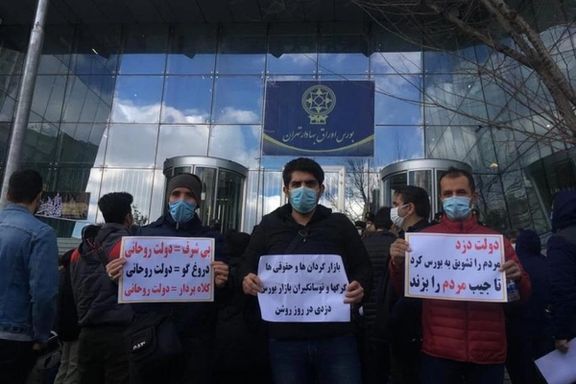
Small investors are exiting Tehran’s stock exchange after 18 months of losses, with the hope of making alternative investments and recoup some of their capital.
In the Iranian month of Day which ended on January 20, sixty trillion rials was taken out of the stock market, local media reported. Based on Tehran’s free market exchange rate on January 24, this equals $240 million, a small sum compared with the world’s large stock markets, but for Iran the amount in local currency and considering the size of the economy it is an alarming development.
The news comes as Iran’s high annual inflation rate hovering above 40 percent showed no sign of declining, and the value of the national currency remained near all-time lows against the US dollar, with 280,000 rials buying just one greenback.
In 1978, just before the overthrow of the pro-West monarchy, 70 rials bought one US dollar – a 4000-fold decline in 44 years.
The stock exchange index declined by a further five percent in the same 30-day period, prompting the exodus of capital from the market. Trading has been very low at the stock exchange with less than $100 million exchanging hands in one month. This is a sign of growing concern among small investors who have badly lost money in the market since mid-2020.
In early 2020 the stock index was less than 500,000 points until the government offered to sell its assets through the Tehran stock exchange which moved the index higher. Then the government began encouraging small investors to commit capital to the market. Top officials spoke through state-controlled media of the supposed benefits of buying stocks and securities. Amid the declining value of the rial and rising stock prices, many small investors concluded that investing in the stock market is a good way to protect their capital from devaluation.
The index rose to 2 million points by mid-2020 in an unbelievable bull market amid US sanctions and a deep economic crisis. Many people began investing when the market was already too high and then it crumbled to 1.2 million points, or a 40-percent decline, wiping out the savings of small investors.
With 18 months of declines or sideways movements, there is no hope for a quick recovery. The government keeps promising to fix the stock market value, as though it is a savings account that a bank must protect and is divorced from the real economy, which is in deep trouble.
There is little available private equity in the market as people have become distrustful of banks and the stock market, both of which the government can manipulate or mismanage. Reports in the past have said that Iranians hold more than $30 billion in cash at home, not trusting the rial, which has declined eightfold since late 2017.
With talks taking place with the United States over Iran’s nuclear program, there is hope that an agreement will end sanctions imposed by the former US administration in 2018. If that happens, it will help the rial to an extent, but the issue is that the government and its banks and companies are mired in debt and inflation. It would take years of high economic growth to save the economy, but in a centrally controlled system without foreign investments, and with cronyism and mismanagement that is a long shot.
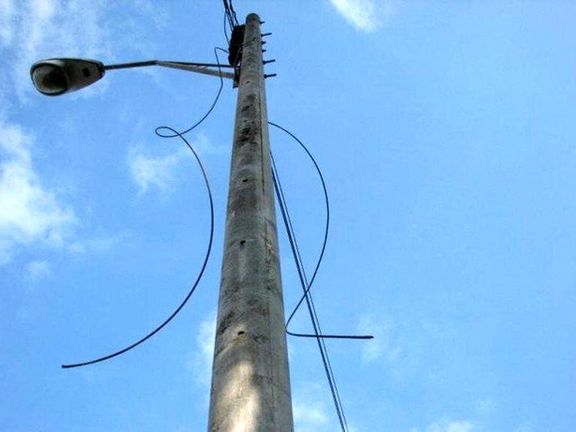
Iran is installing sensors and cameras on roadside electrical equipment to help catch anyone stealing power cables and lamps.
An official from Iran’s Road Maintenance and Transportation Organization told ILNA Monday that theft of power cables and road equipment such as lamps and traffic signs had increased significantly.
Reza Akbari said that with most thieves on low incomes, heavy sentences were not possible, even though removing lights and signs threatened road safety. He added that thefts were happening both in provinces like Sistan-Baluchestan and Kerman with relatively light traffic and on roads just 50km from the capital Tehran.
The installation of GPS tracking devices on the most expensive equipment would enable the identification of major buyers of the stolen goods, Akbari said. Some had already been identified and referred to the judicial authorities, “unfortunately…[with] cases…in most of the provinces”.
With the purchasing power of Iranians in decline, shoplifting and burglaries have increased along with protests over working conditions and salaries. Food prices have jumped over 60 percent this year, following high inflation since the imposition of US ‘maximum pressure’ sanctions in 2018. Government figures show that prices for 83 percent of food staples have reached a level deemed ‘critical’ for those on broadly average wages.